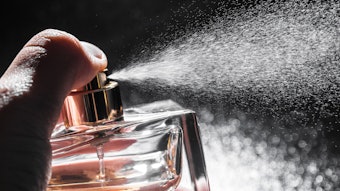
The Estée Lauder Companies is teaming up with the TUD Dresden University of Technology's Smell & Taste Clinic, Department of Otorhinolaryngology, and its professor Thomas Hummel, MD, to study the correlation between scent and emotions, including nostalgia. The company's global R&D times will leverage the learnings from this project, including at its Paris-based atelier, a new fragrance-centric co-creation space opening in early 2025.
Consumers' Mood-centric Fragrance Habits
The focus on emotion is critical for consumer engagement; as previously reported, 80% of fragrance users leverage scents to boost their moods. This is particularly crucial for Gen Z shoppers.
A September 2023 report from DTC commerce specialist ESW noted, “Unlike previous generations, who often wore a signature scent consistently, Gen Z is more likely to choose fragrances based on how they feel on a particular day. This has led to a surge in demand for smaller, more affordable fragrances that can be easily mixed and matched to express different moods and emotions.”
The Estée Lauder Companies' Latest Fragrance Research Project
Under the new research project, the Estée Lauder Companies seeks to decode the neurological connections between fragrance and emotion to drive fragrance product development, packaging innovation, the development of consumer experiences and marketing claims, and more.
The work will include an assessment of the neuropathways associated with scent, psychometric and physiological analyses, brain imaging studies, and more to assess the correlation between scent and emotions.
This work builds on its existing research into the functional benefits of fragrance.
“Scents have long been associated with emotions and have a powerful connection to wellness,” says Sumit Bhasin, senior vice president, corporate fragrance R&D, product development and innovation, ELC. “As consumer interest in the functional benefits of fragrance continues to accelerate, we are thrilled to be the first prestige beauty company to partner with Dr. Hummel and leading academic institution the TUD Dresden University of Technology on neuroscience research that will provide us with deeper insights into how fragrance plays a role in evoking nostalgia.”
“There is a unique opportunity for academia and industry to partner together to explore the power of scent,” said professor Hummel. “We are proud to partner with a fragrance powerhouse like The Estée Lauder Companies with a proven commitment to science and the continuous advancement of innovation.”










